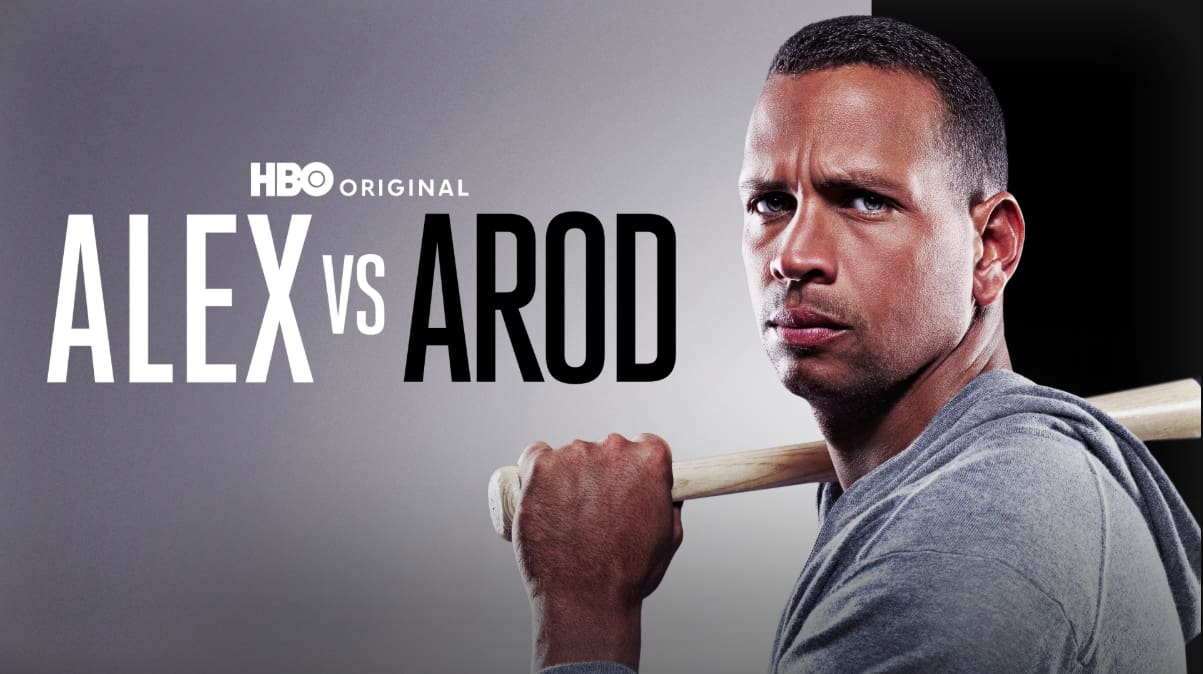
Written by Michelle Liloia
This three-part HBO series, directed by Gotham Chopra and Erik LeDrew, offers an expanded look at the life of Alex Rodriguez, both the icon (“A-Rod”) and the man (“Alex”) behind the public myth. Alex vs. A‑Rod is less about listing his baseball achievements and more about exploring how fame and success has affected him personally.
From his quick rise as a teenage baseball star to his huge contracts, the series traces Rodriguez’s transformation into one of baseball’s most talked-about players. But it goes beyond stats and fame, it looks at his use of performance-enhancing drugs and the 211-game suspension that followed. It digs into the struggle between “Alex the person” and “A-Rod the brand,” his tough childhood without a father, and how that shaped his ambition. The series also shows his efforts to make things right through therapy, fatherhood, and rebuilding his sense of self.
One of the best things about the series is how honest it feels. While a lot of sports documentaries focus just on highlights and big moments, this one looks at Rodriguez as a person: his ambition, ego, regrets, and wish to change. He even calls himself a “recovering narcissist.” The style is thoughtful and reflective, not just a celebration of his career. The “versus” in the title really works, showing the real conflict between the athlete everyone sees and the person he actually is.
However, the series isn’t without its flaws. At times, the film leans a little too much toward sympathy when it comes to Rodriguez’s most controversial moments, including his scandals and mistakes on and off the field. Key parts of his personal life, like his romantic relationships and behind-the-scenes conflicts are barely mentioned or left out entirely, which can make the story feel incomplete. On top of that, because Rodriguez has spent so many years managing his public image and media presence, some viewers may question whether the series is a fully honest look at his life or more of a carefully crafted narrative meant to shape his legacy. Even with these issues, the series still offers insight into the man behind the headlines, but it’s worth keeping its perspective in mind.
For baseball fans who want to understand one of the game’s most complicated players, and for viewers interested in stories about the personal cost of fame and the struggle with identity, the series will definitely hit home. On the other hand, anyone looking for a fast-paced, scandal-filled exposé might find it slower than expected, since the focus is more on reflection, redemption, and the emotional journey rather than just the headlines or on-field highlights.
Ultimately, Alex vs. A-Rod is a thoughtful and emotionally rich look at a man who achieved almost everything in his career, but in the process, lost a lot of himself behind the public image. The series encourages viewers to see Rodriguez not just as A-Rod the baseball star, but as Alex the person, dealing with questions of legacy, identity, failure, and family. While the series sometimes leans toward sympathy, it earns that perspective through honest reflection and moments of vulnerability. It raises bigger questions: can Rodriguez truly rewrite the story people tell about him? And even if he can, what does that mean for the sport, for the fans, and for himself?

